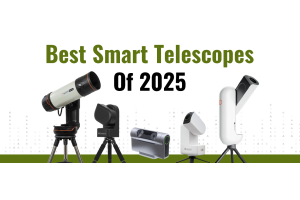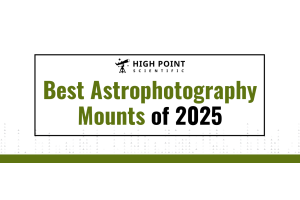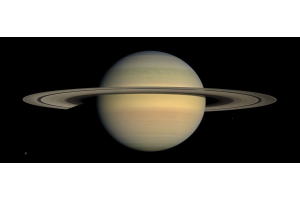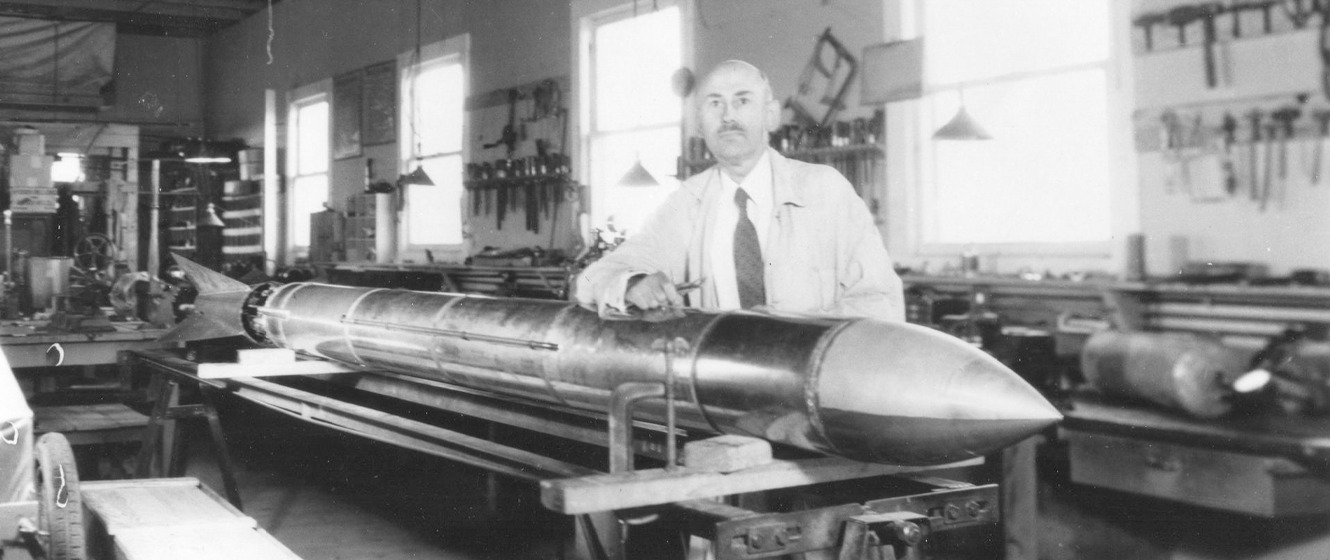
The best career advice out there is to find something you’re passionate about and pursue that. A passion for astronomy can lead you to a number of careers, all of which tackle a different aspect of it. Adventurers, intellectuals, math geeks, and everyone in between can find a path that works for them. If you want to study, research, live, and breathe astronomy, these are the careers for you.
Astronomer
An interest in astronomy and a career as an astronomer go hand in hand. If your curiosity about the universe is insatiable and you want to be at the forefront of research, contributing to the discoveries that change how we view our place in the cosmos, you’ll fit well in this career path.
Astronomers typically specialize in a specific area of interest and conduct research in that area. You might think of astronomers as solitary types, but many work with teams to more effectively do research and corroborate findings. There’s also much work to be done at night during peak observation times, as well as a lot of computer software to learn in order to build models from the collected data.
Most astronomers earn PhDs in order to secure positions at universities or research institutes, but to get there, they first start with a bachelor’s degree in something like astronomy, physics, or mathematics. Next comes a graduate program, which can be difficult to get into since there’s a lot of competition. Internships and independent research can beef up your resume and help you secure a spot in a prestigious program. After earning a master’s degree, aspiring astronomers then move on to PhD programs.
Astronomers work everywhere from universities to research institutes and even in the government. An example of a well-known astronomer is Edwin Hubble.
 Photo: Edwin Hubble. Photo Credit: AP/REX/Shutterstock.com
Click to Enlarge Image
Photo: Edwin Hubble. Photo Credit: AP/REX/Shutterstock.com
Click to Enlarge Image
Astrophysicist
Astrophysicists and astronomers have similar job roles, but astrophysicists are more focused on, you guessed it, the physics side of things. They aim to study the physical interactions in space and the behavior of celestial bodies that can explain certain phenomena. While the work of an astronomer is very real-world oriented, astrophysicists often work in a theoretical realm, which uses mathematical and physical principles to make predictions about things we don’t or can’t see or detect in our current state.
Other than that, job responsibilities for astrophysicists are similar to those of astronomers. There is a lot of research, data collection, and experimentation, and many astrophysicists specialize in a favored area of research.
Budding astrophysicists should focus their studies on physics and mathematics as well as astronomy. A PhD is required for bigger research opportunities, and a demonstrated ability to conduct independent research will help you stand out. Experimental astrophysicists should have a lot of lab work under their belts, and theoretical astrophysicists would benefit from being proficient in computer software.
Like astronomers, astrophysicists can find jobs at research institutes and universities as well as governmental organizations. An example of a well-known astrophysicist is Carl Sagan.
 Photo: Carl Sagan. Photo Credit: NASA
Click to Enlarge Image
Photo: Carl Sagan. Photo Credit: NASA
Click to Enlarge Image
Cosmologist
Cosmology and astronomy are often seen as the same thing, but while astronomy is concerned with the here and now, cosmology is dedicated to looking into the past. Cosmologists are after the origins of the universe; what happened at the beginning, just after that, and how it all might end. They answer the big questions.
This is usually done through research and data collection. While astronomers spend some of their time observing, cosmologists focus on experimenting and analyzing. They’ll often use computer simulations to model early universe conditions and explore their theories.
As with astronomers and astrophysicists, cosmologists need skills in math and physics. More than the other two careers, cosmologists should be well-versed in computers and programming in order to do their work well. Many cosmologists work at universities, particularly those with strong cosmology programs.
Stephen Hawking is an example of a famous cosmologist.
 Photo: Stephen Hawking. Photo Credit: NASA
Click to Enlarge Image
Photo: Stephen Hawking. Photo Credit: NASA
Click to Enlarge Image
Aerospace Engineer
So far, all of the astronomy careers featured have been focused on research. Aerospace engineers, on the other hand, get to work with their hands and minds to create and build. Aerospace covers both airplanes and rockets, along with other flying objects (like satellites). If you’re more interested in designing the vehicles that take explorers to space or putting together incredible technology to venture to other planets and conduct research autonomously, the field of engineering is right for you.
Unlike the other occupations discussed, you can get started in aerospace engineering with a bachelor’s degree. Of course, to work your way up and gain more prestigious and high-stakes positions, you’ll want to pursue a master’s degree as well. For both degrees, a focus on either aerospace engineering or engineering in general is the way to go.
Many aerospace engineering positions used to be mainly government-based (aside from those focused on airplane design, of course), but with more and more private companies venturing into the realm of space travel, there are more opportunities in the once sparse sector.
One famous aerospace engineer, a pioneer in the area of space flight, was Robert H. Goddard.
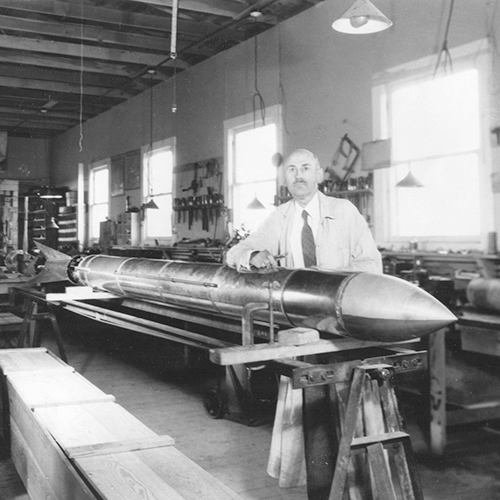 Photo: Robert H. Goddard. Photo Credit: NASA
Click to Enlarge Image
Photo: Robert H. Goddard. Photo Credit: NASA
Click to Enlarge Image
Astronaut
At last, we come to the career that every space-loving kid dreams of. We’ve sent a staggeringly small number of people to space, making this career path challenging, competitive, but incredibly rewarding. As we continue to improve rocket technology and expand our reach farther out into the solar system, the types of missions and opportunities will continue to grow.
Astronauts are researchers and explorers. In the early days of space travel, a requirement for becoming an astronaut was pilot experience. These days, that’s not the case, but NASA still looks for specific skills that can be utilized on missions. To become an astronaut, you’ll need to meet the requirements laid out by NASA in order to apply for the astronaut program. The requirements are fairly straightforward:
- Applicants must meet height and weight requirements
- They must pass a space physical
- A master’s degree in a STEM field is required, or two years completed of a STEM doctoral degree program, completed Doctor of Medicine or Doctor of Osteopathic Medicine degree, or completed test pilot school program
- Applicants need two years of professional experience in their degree field or 1,000 hours of pilot-in-command time on a jet aircraft
In each pool of applications, NASA selects just a fraction of them for further interviews. As you work to meet the requirements, do what you can to distinguish yourself and prove yourself a primary candidate.
 Photo: NASA Astronaut Jonny Kim. Photo Credit: NASA
Click to Enlarge Image
Photo: NASA Astronaut Jonny Kim. Photo Credit: NASA
Click to Enlarge Image
Science Journalist
Do you feel more comfortable with a pencil in your hand instead of a calculator, but you still want to make your mark in the astronomy world? Science needs good communicators who can reach out to the public and make complex topics accessible. If you think you have a knack for that, you might want to be a science journalist. There are a number of science magazines and websites, and all of them need content writers. Many research institutes and universities also put out press releases when they make a new discovery, and guess who writes those? Nine times out of ten, it’s not the scientists.
In the beginning, many science journalists will start out pursuing a degree in journalism and get a minor in a science-focused field. Specializing is a good idea, since there are many different areas of science to cover, and if you can establish yourself as an authority in one, you’ll stand out. As an astronomy geek, you’ll want to take astronomy and physics courses so you can authoritatively explain astronomical phenomena to the general public.
Carl Zimmer is just one well-known science journalist who has written for publications like National Geographic and the New York Times.
 Photo: Carl Zimmer. Photo Credit: https://english.yale.edu/
Click to Enlarge Image
Photo: Carl Zimmer. Photo Credit: https://english.yale.edu/
Click to Enlarge Image
College Professor
Whether you want to jump directly into academia or you want to pursue one of the previously mentioned careers before becoming a professor, educating the next generation is a rewarding experience.
To make teaching at a university your career, you need to be a tenured professor. To get tenure, you’ll need one or more graduate degrees. PhDs are a must, and they should be in the area you intend to teach. A career as a professor is really like a lifelong pursuit of higher education; those who love to learn will do well. It’s best to form a relationship with one particular university you feel drawn to or have attended in the past, as the hope is that you’ll be teaching there for many years. Of all the careers mentioned, this is the one with the largest estimated future growth, so opportunities will abound.
To inspire your journey towards academia, take cues from Richard Feynman, a well-known and beloved physicist who became a popular professor at Cal Tech.
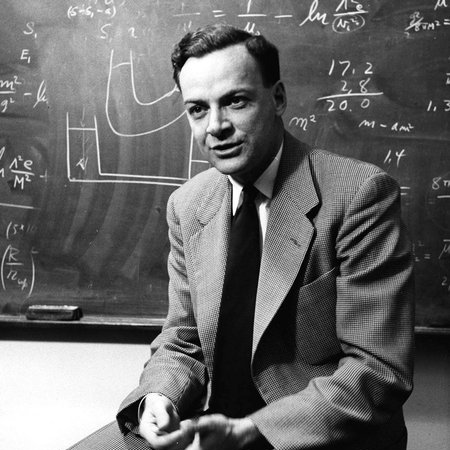 Photo: Richard Feynman. Photo Credit: Caltech Archives
Click to Enlarge Image
Photo: Richard Feynman. Photo Credit: Caltech Archives
Click to Enlarge Image
It’s sometimes difficult to picture the career you want to pursue for the rest (or at least a majority) of your life. You might wonder if you have the skill, if you’re competitive enough, and if what you think your passion is really will sustain you for years to come. But if you can picture yourself in any of these careers, don’t let that voice of doubt make you rethink your abilities. Choose the path that makes you excited to wake up in the morning, and you’ll already have succeeded.
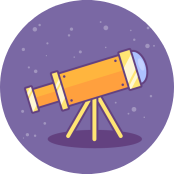
Learn More
Interested in diving deeper into the world of astronomy? Check out our AstronomyHub for a wealth of articles, guides, local resources for planetariums and observatories near you, and more to enhance your stargazing experience.







